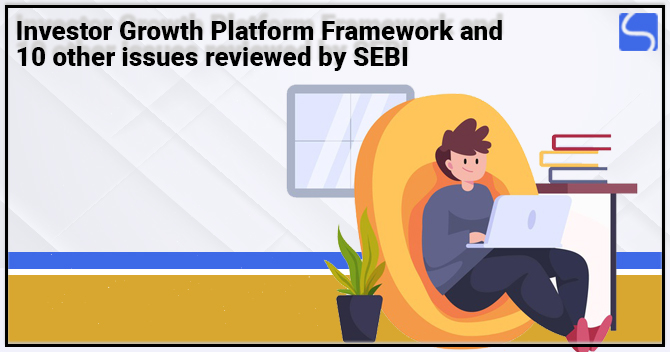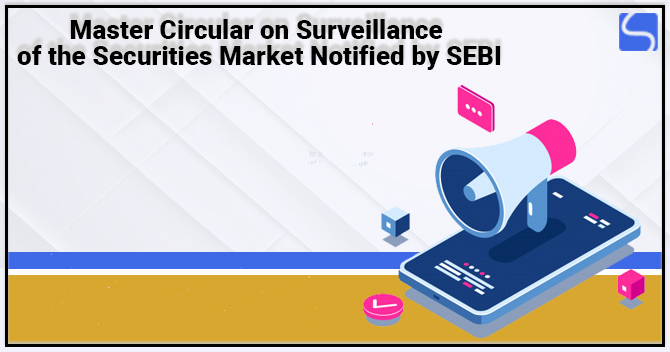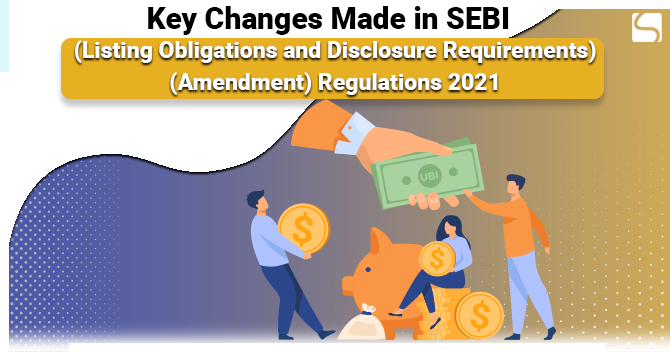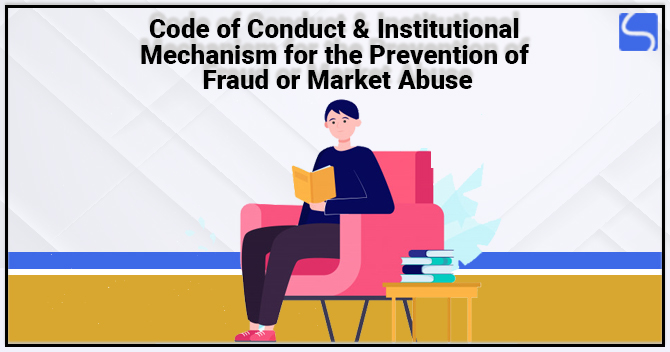Investor Growth Platform Framework and 10 other issues reviewed by SEBI

Shivani Jain | Updated: Apr 22, 2021 | Category: SEBI Advisory
The SEBI Board on 25.03.2021 inter alia reviewed the investor growth platform framework and 10 other issues and has proposed certain recommendations and proposals regarding the same by way of Press Release No 15/2021. In this learning article, we will discuss in detail the proposals and recommendations made by SEBI in the Investor Growth Platform Framework and 10 other issues.
It has been declared to allow an Issuer Company to allot up to 60% of the total issue size on a discretionary basis, before the opening of the issue, to the eligible investors that, too, with a lock-in period of 30 days on such shares.
Table of Contents
Review of Investor Growth Platform Framework
The SEBI has approved the following proposals with regard to Investor Growth Platform (IGP) framework under the SEBI (Issue of Capital & Disclosure Requirements) Regulations 2018, with an aim to make the said platform more accessible and available to companies. The reason behind the same is to develop a start-up ecosystem.
Further, the key proposals approved by SEBI are as follows:
- Based on the present eligibility criteria under Investor Growth Platform, the lock in period for the eligible investors regarding 25% pre issue capital has been reduced from two to one year;
- The term “Accredited Investor” for the purpose of IGP has been renamed as the “Innovators Growth Platform Investors”. Further, the pre-issue shareholding of such investors has been increased from 10% to 25%;
- It has been declared to allow an Issuer Company to allot up to 60% of the total issue size on a discretionary basis, before the opening of the issue, to the eligible investors that, too, with a lock-in period of 30 days on such shares;
- In accordance with the provisions of the Main Board IPO, all the Issuer companies which have issued SVR (Superior Voting Rights) equity shares to their promoters or founders will be permitted to do listing under the IGP framework;
- For all the listed companies under the IGP framework, the stipulation for triggering open offer under the Takeover Regulations 2011 has been relaxed from the prevailing 25% to 49%. However, it shall be noted that regardless of holding or acquisition of shares or voting rights in the target company, any type of change in control, whether directly or indirectly, will trigger an open offer;
- Delisting of shares under the IGP framework will be considered successful if, in the post-offer,the acquirer or promoter shareholding, together with the shares accepted, reaches 75 percent of the total issued shares of that class. Also, at least 50% of shares of the public shareholders are accepted.
Further, for the delisting of shares under the IGP framework, the RBB (Reverse Book Building) mechanism will not be applicable, and for the computation of the offer price, the floor price shall be determined based on the terms of the Takeover Regulations 2011, together with the delisting premium as justified by the acquirer or promoter;
- If in case a company is not able to satisfy the conditions of net worth, profitability, net assets, etc., then, in that case, migration from IGP to the Main Board needs a company to have at least 75% of its total capital held by QIBs (Qualified Institutional Buyers) as on the date of application for migration. However, it shall be noted that the said requirement has now been reduced to 50%;
Business Responsibility & Sustainability Reporting by the Listed Entities – Investor Growth Platform Framework
In the recent SEBI Meeting, the board has decided to implement various new requirements for the listed company concerning sustainability reporting. This new report will be known as the BRSR (Business Responsibility and Sustainability Report) and will replace the prevailing BRR (Business Responsibility Report). Also, the same will be applicable to the top 1000 listed entities for reporting on a voluntary basis in FY 2021 – 2022 and mandatory basis in 2022 – 2023.
Further, the BRSR lays down considerable emphasis on the quantifiable metrics, which permits for easy measurement & comparability across companies, sectors & time periods.
It shall be noted that the disclosures made under the BRSR are bifurcated into essential (mandatory) & leadership (voluntary) indicators.
Also, the Business Responsibility and Sustainability Reporting provides for an inter-operability of reporting, i.e., the entities or companies which prepare the sustainability report, based on the internationally accepted reporting frameworks, such as GRI, TCFD, SASB, Integrated Reporting, can cite the disclosures sought under the “BRSR” to the disclosures made under above mentioned frameworks.
The main aim of the new reporting requirements is to bring in greater transparency vide disclosure of material ESG-related details to allow market participants to determine and assess the sustainability-related risks & opportunities.
Amendment made in the SEBI (Alternative Investment Funds) Regulations 2012
The amendments approved and proposed by the board for the SEBI (Alternative Investment Funds) Regulations 2012 are as follows:
- It provides a definition of the term “startup” as prescribed by the Government of India (GOI) for the purpose of investment in Angel Funds;
- The list of all the restricted activities or sectors will now be removed from the definition of “Venture Capital Undertaking” to provide more flexibility to the registered Venture Capital Funds under Category I AIFs (Alternative Investment Funds) in making investments;
- All the AIFs, inclusive of Fund of AIFs, are allowed to instantaneously invest in units of other AIFs and directly in the securities of investee companies, but subject to certain conditions;
- Clarity will be provided regarding the scope of responsibilities and duties of Managers and members of the Investment Committees; and
- To prescribe a Code of Conduct for the Alternative Investment Fund, Trustee & directors of the Trustee/ Designated Partners/directors of the AIF, Manager and members of the Investment Committee, and for the key management personnel of AIF;
Amendment made in the SEBI (Portfolio Managers) Regulations 2020
The Board has approved the amendment to the SEBI (Portfolio Managers) Regulations 2020 and has mandated that Portfolio Managers need to obtain prior approval of the SEBI for change in control.
Online Payment of Fees -Investor Growth Platform Framework
The Securities and Exchange Board of India has approved the proposal concerning payment of fees by intermediaries only through an online payment gateway. That means the same will first remove the physical mode of payment and will encourage digital payment.
Budget Estimates for the Financial Year 2021 – 2022
The SEBI Budget for the fiscal year 2021 – 2022 was considered and duly approved by the Board.
Review of the SEBI (Delisting of Equity Shares) Regulations 2009
The Board has duly approved several amendments concerning the SEBI (Delisting of Equity Shares) Regulations 2009[1]. The same was primarily done with an objective to make the process of delisting more transparent and efficient.
Further, some of the key amendments made are as follows:
- Promoter or acquirer will need to disclose his/ her intention to delist the shares of the company by making an “initial public announcement”;
- The Committee of the Independent Directors will need to provide their “reasoned recommendations” on the proposal for delisting of shares;
- Timelines for the completion of various activities which forms a part of the delisting procedure have been introduced and revised to make the said procedure more efficient;
- Promoter or acquirer will now be permitted to mention an indicative price for the process of delisting, which must not be less than the actual floor price;
- Promoter will now be bound to accept the price determined through the RBB (reverse book building) mechanism if the same is at par with the actual floor price or indicative price;
- Lastly, the role of the merchant banker involved in the process of delisting needs to be elaborated;
Review of Disclosures concerning Institutional Investor
At present, a listed entity needs to disclose the schedule of all the analysts or institutional investors meet, together with the presentations made in such meetings, to the recognised stock exchanges and on its official website.
Further, the Board has declared to amend the provisions to introduce the prerequisite of disclosing as follows:
- Audio or video recordings of these meetings must be uploaded on the website of the said listed entity and exchanges promptly that, too, before the next trading day or within a period of 24 hours, whichever is earlier;
- Further, the written transcripts of these meetings must be uploaded on the website as well within five working days;
Constitution, Role, and Applicability of Risk Management Committee
The Board duly considered and approved the amendments to the Securities & Exchange Board of India (Listing Obligations & Disclosure Requirements) Regulations 2015 in regard to the applicability, role, and constitution of the RMC (Risk Management Committee) of the listed entities.
The amendments approved inter-alia include the listed as follows:
- The prerequisites for establishing a Risk Management Committee has been made applicable to the top 1000 listed companies by market capitalisation from the prevailing top 500 listed companies;
- The Risk Management Committee will have a minimum of three members, out of which majority of them must be the members of the BOD (board of directors), comprising of at least one independent director;
- The quorum for the meeting of the Risk Management Committee will be either one third of the total members of the committee or two members, whichever is higher, comprising of at least one member of the BOD (board of directors) in attendance;
- The role and duty of the Risk Management Committee has been specified which, inter-alia, comprises of the formulation of a detailed and comprehensive risk management policy and observing its implementation;
- Lastly, the periodic review of such risk management policy; periodic review of the appointments made, removal and terms of the remuneration of the CRO (Chief Risk Officer);
Review of the Regulatory Framework for the Reclassification of Promoter and Group Entities -Investor Growth Platform Framework
The Board has approved the proposal to explain the existing framework concerning the reclassification of promoter or promoters’ group entities which comprises of exemption from:
- The prevailing requirements, in the cases of re-classification pursuant to the direction of the regulator under any law in force, in accordance with the existing exemption already available to the cases of resolution planned and approved under the provisions of section 31 of the Insolvency code;
- The requirement of looking forprior approval of the members orshareholders in the cases where the promoter seeking re-classification holds a shareholding of less than 1%, but the same is subject to the promoter not being in control;
- Few procedural requirements concerning re-classification, such as obtaining request from the promoter, approval from the BOD (board of directors) and shareholders in case of an open offer under the SEBI Takeover Regulations & scheme of arrangement. Further, it shall be noted that the said exemption will be subject to the disclosure of the intent of re-classification of the outgoing promoter in the letter of offer (LOF) or scheme of the arrangement, togetherwith fulfilling other requirements, such as not having any control, or not represented on the Board, etc.;
It has also been declared to reduce the time gap between the date of the board meeting and shareholders meeting for consideration of reclassification request, to a minimum of one month and a maximum of three months from the existing requirement of minimum period of three months and maximum six months.
Review of SEBI (LODR) Regulations 2015
The Board, i.e., SEBI, has approved several amendments concerning the Securities & Exchange Board of India (Listing Obligations & Disclosure Requirements) Regulations 2015. Further, some of the key amendments made are as follows:
- Requirement for the formulation of DDP (Dividend Distribution Policy) by the existing top 500 listed companies has been stretched to the top 1000 listed companies based on the market capitalisation;
- In case the board meetings are held for one or more day, then, in that case, the financial results will be disclosed by the listed companies within a period of 30 minutes, starting fromthe of end of the board meeting (BM) for the day on which the said financial results are considered;
- The provisions of the Listing Obligations and Disclosure Requirements Regulations which is applicable to listed companies based on the following listed:
- The market capitalization criteria, which shall continue to apply even if such companies subsequently fall below the prescribed thresholds;
- The paid-up capital and net-worth criteria, which shall continue to be applicable to such companies unless the required paid-up capital or the net-worth falls and continues to remain less than the threshold for a tenure of three consecutive financial years;
- The requirement to obtain stock exchange approval for the change of name of a listed company is dispensed with;
- The prescribed timelines for the submission of periodic reports, such as the statement of investor complaints, CG (corporate governance) report, and shareholding pattern will now be harmonized to 21 days, starting from the end of each quarter;
- Further, the frequency of the submission of the compliance certificates concerning the share transfer facility (STF) and issuance of share certificates, within a period of 30 days of the lodgement for transfer, sub-division, etc., has now been revised from half-year to annual basis;
- Lastly, the requirement to publish advertisements in newspaper for the notice to BM (board meetings) where the financial results are to be discussed and for the quarterly statement on deviation or variation in use of funds, has now been dispensed with;
Further, the amendments are purposed at confirming gender neutrality and keeping consistency within the Listing Obligations and Disclosure Requirements Regulations.
Also, it aims to harmonize certain provisions of these Regulations with the provisions of the Companies Act 2013. The reason behind the same is to strengthen the practises of corporate governance and disclosure requirements, and to ease out the compliance burden on listed companies.
Conclusion – Investor Growth Platform Framework
In a nutshell, SEBI Board on 25.03.2021 has reviewed the investor growth platform framework and 10 other issues and has proposed certain recommendations and proposals regarding the same by way of Press Release No 15/2021.
Also, Read: SEBI Notifies SCRA (Stock Exchanges & Clearing Corporations) Regulations 2021














